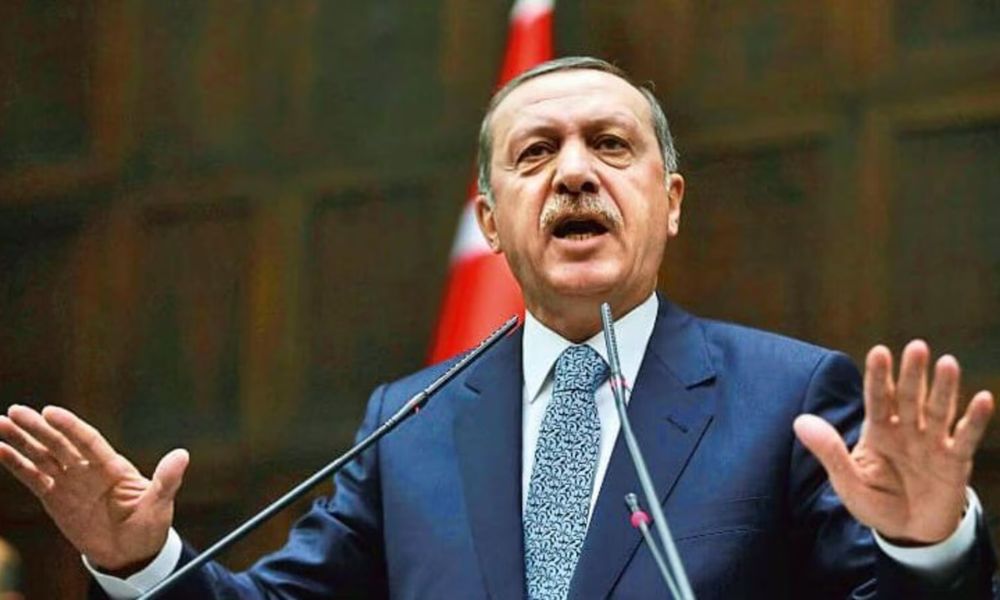
Recep Tayyip Erdogan, a name that resonates with power and controversy, has been a central figure in Turkish politics for more than two decades.
Rising from humble beginnings, he has navigated the intricate maze of Turkish politics, leaving an indelible mark on the nation's history.
This blog will delve into the fascinating journey of Erdogan's ascent to prominence and examine the factors that have contributed to his enduring influence in Turkish politics.
To understand Erdogan's rise to prominence, we must first rewind to his early years.
Born on February 26, 1954, in Istanbul, Erdogan hailed from a working-class family.
| Are you a Tax Lawyer in USA? 👉Transform Your Brand: Click for Metamorphosis👈 |
His father, a coastguard, and his mother, a housewife, instilled in him traditional Turkish values and a strong work ethic.
Erdogan's upbringing in the Kasimpasa neighborhood of Istanbul shaped his worldview and forged a connection with the common people of Turkey that would later become a hallmark of his political career.
Erdogan's educational journey took him to Marmara University, where he studied Business Administration.
However, his real passion lay in politics, and he was an active member of various Islamist organizations during his university years.
This early involvement in political activism laid the foundation for his future in Turkish politics.
Erdogan's political career began in earnest when he was elected as the Mayor of Istanbul in 1994. His tenure as mayor marked a turning point in his political trajectory.
He demonstrated strong leadership skills, implementing infrastructure projects and policies that improved the city's quality of life.
Erdogan's success as mayor earned him recognition and popularity among the residents of Istanbul, a crucial stepping stone toward his prominence in national politics.
Erdogan's time as mayor was not without controversy. In 1997, his recitation of a controversial poem led to his temporary imprisonment and a ban from political office.
However, this setback did little to dampen his resolve. Erdogan used this time to regroup, refine his political strategy, and emerge stronger than ever.
One of the pivotal moments in Erdogan's political career came with the founding of the Justice and Development Party (AK Party) in 2001.
This moderate Islamist party, led by Erdogan, aimed to bridge the gap between religion and politics in Turkey.
The AK Party quickly gained support from a broad spectrum of the Turkish population, particularly from the conservative and religious segments.
Erdogan's charisma, combined with the AK Party's platform of economic growth and political stability, resonated with the masses.
In the 2002 general elections, the AK Party secured a landslide victory, allowing Erdogan to become the Prime Minister of Turkey.
This was a significant milestone in his journey to political prominence, as he became the leader of one of the most influential countries in the region.
Erdogan's leadership was characterized by significant economic reforms and a more assertive foreign policy.
Under his watch, Turkey experienced impressive economic growth, modernization, and infrastructure development.
These achievements garnered both domestic and international recognition, solidifying Erdogan's position as a prominent political figure.
On the regional stage, Erdogan pursued an ambitious foreign policy, positioning Turkey as a key player in Middle Eastern affairs.
His stance on issues such as Palestine, Syria, and Libya has drawn both praise and criticism, but it undeniably enhanced Turkey's influence in the region.
Erdogan's journey to prominence has not been without its share of challenges and controversies.
He has faced accusations of authoritarianism, curtailment of press freedom, and human rights violations.
These issues have sparked protests and international scrutiny, leading to a polarized view of his leadership.
Recep Tayyip Erdogan's path to becoming a prominent figure in Turkish politics is a captivating tale of determination, political acumen, and resilience.
From his humble beginnings in Istanbul to his current status as Turkey's President, Erdogan has demonstrated an extraordinary ability to connect with the people and navigate the complexities of Turkish politics.
While his leadership is marked by achievements and controversies alike, there is no denying that he has left an indelible mark on the nation's political landscape, shaping Turkey's present and future in ways that will be debated and discussed for years to come.